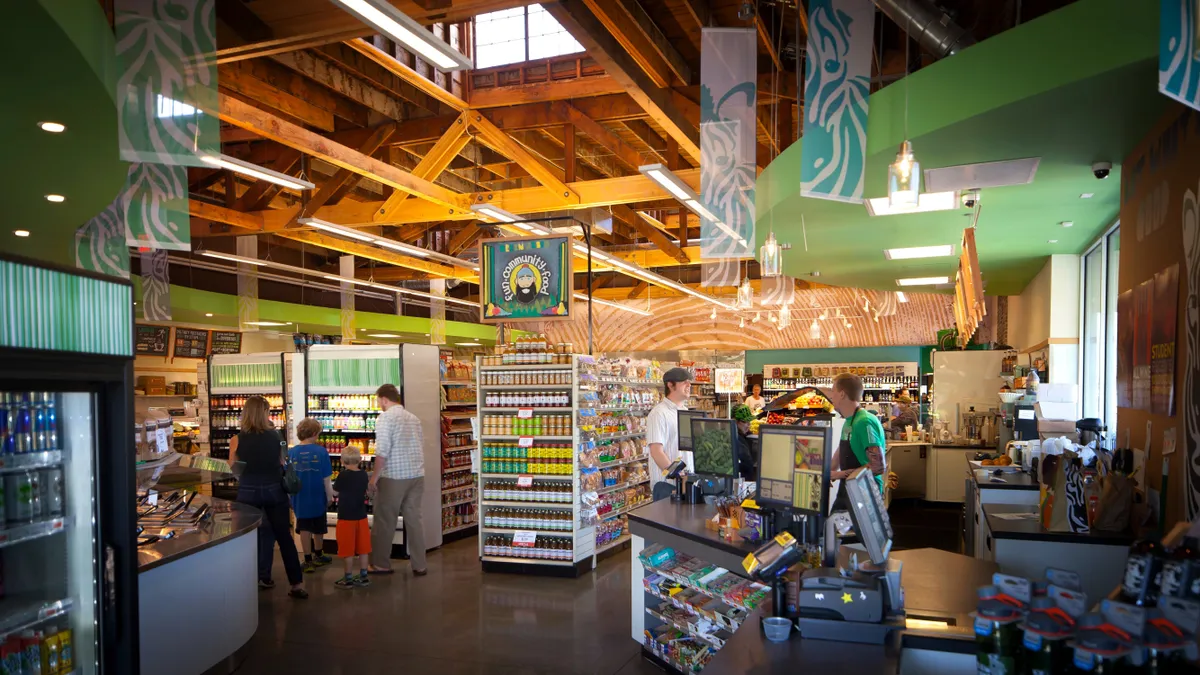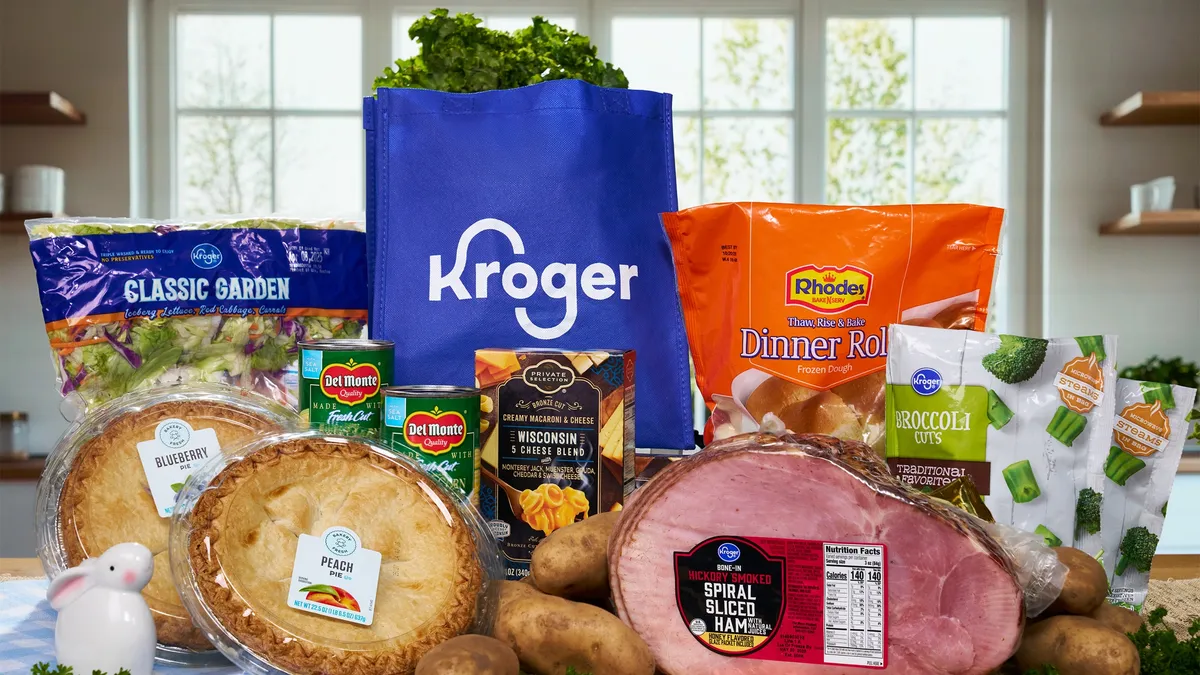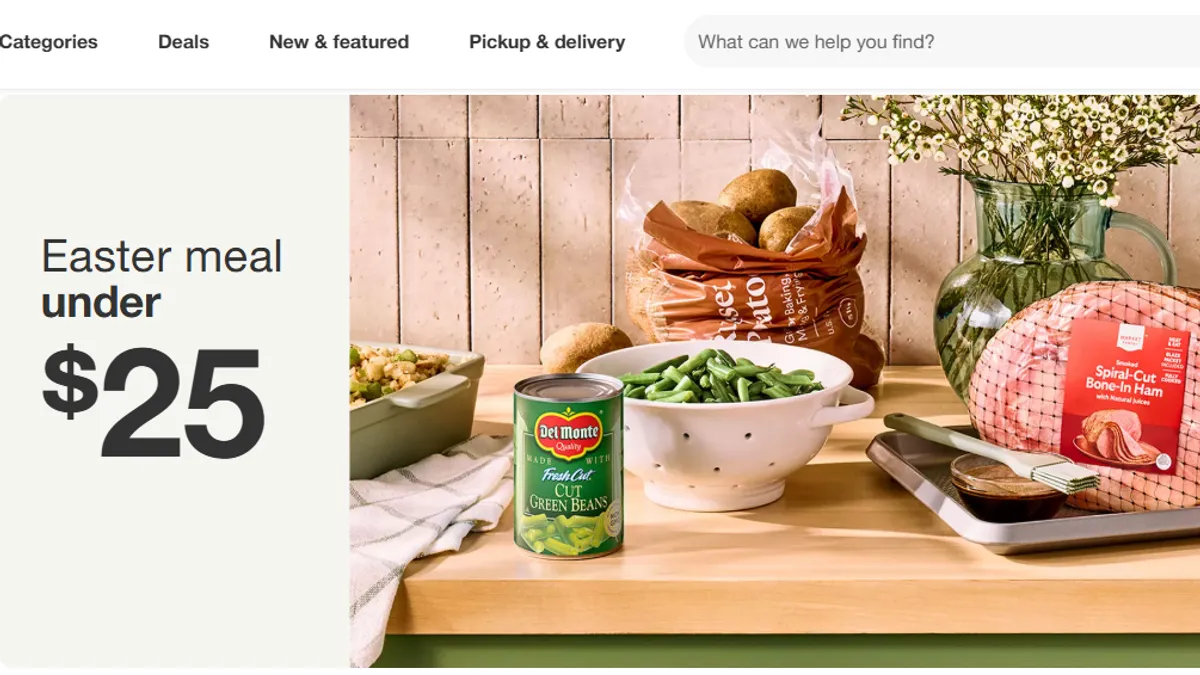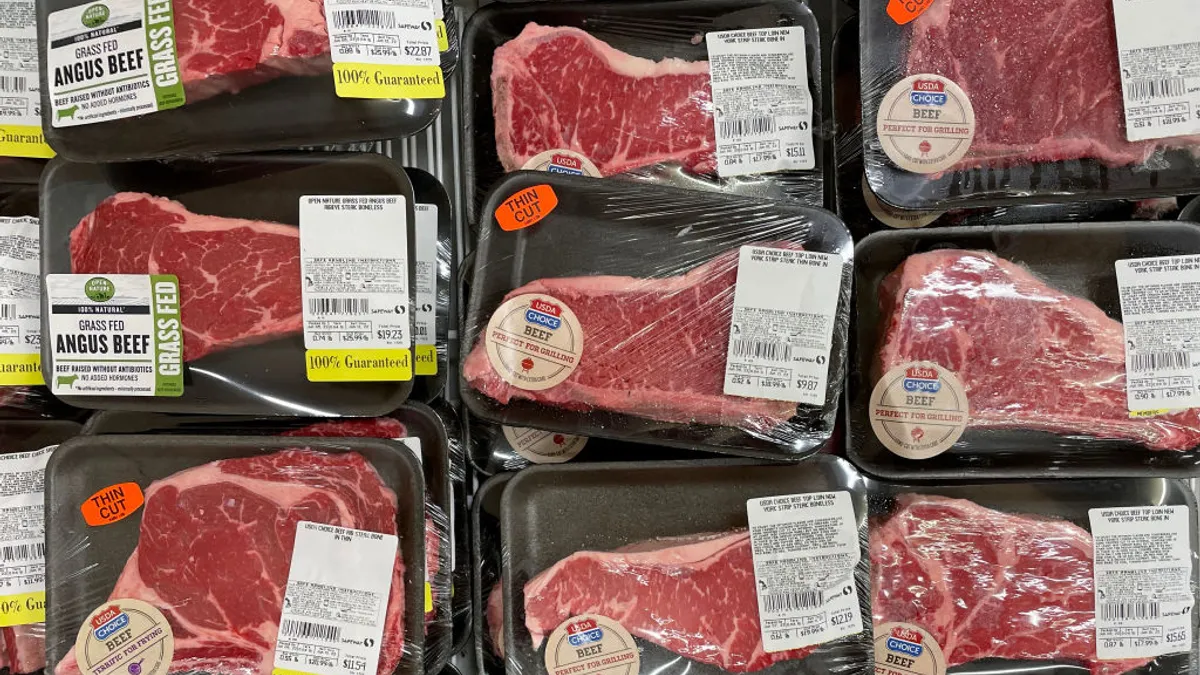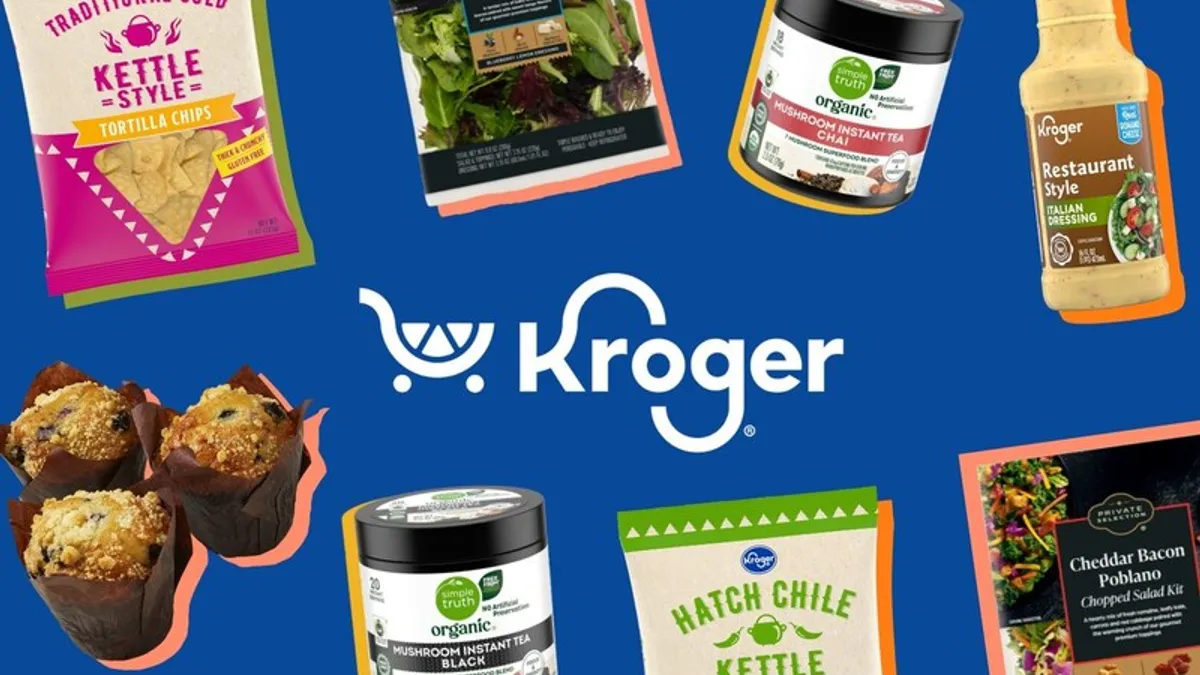Green Zebra Grocery in Portland, Oregon, is not your ordinary convenience store.
Instead of fountain sodas and racks of candy, the three unit-retailer sells locally roasted coffee, kombucha slushies and a curated selection of specialty groceries and snacks, many produced in the state. There’s a carefully selected assortment of wine — all under $20 a bottle — as well as beer and even raspberry mead.
The salad bar, a top seller, is all organic, and many prepared foods are made in-house. The stores, which at 5,000 square feet are roughly double the size of the average convenience store, are bright and easy to navigate. In all, they carry about 6,000 SKUs, including plenty of produce and a limited assortment of conventional groceries, as well as dog food.
"We’re a cross between a Whole Foods and a 7-Eleven and we’re redefining what it means to be a convenience store in America by offering healthy food," CEO Lisa Sedlar told Grocery Dive. Sedlar founded Green Zebra in 2013 after serving as CEO of natural and organic chain New Seasons Market, which operates 25 specialty stores in California, Washington and Oregon.
Small stores, big plans
At a time when small stores like Aldi are ascendant and demand for premium specialty and grab-and-go products continues to grow, Green Zebra stores are striking a chord. Customers spend an average of $10 per trip, and many come back the next day, Sedlar said. The three units are on track to bring in a combined $12 million this year, she said.
The positive results are giving her the confidence to open a fourth store in Portland early next year. From there, Sedlar has big plans — really big plans.
Green Zebra aims to expand along the West Coast, with 24 locations operating by 2023. The bigger picture is a chain of 200 Green Zebras plus 200 micro locations with limited assortments slated to open inside office buildings and other establishments. The "micro Zebra" test location, slated to open in January at a WeWork office space in Portland, will feature pre-made salads, sandwiches, beverages and nutrition bars. Checkout will be conducted on the honor system via an iPad or phone app. There will be cameras to monitor the action, Sedlar said.
Jim Hertel, senior vice president of Inmar Analytics, said the timing is right for Green Zebra. "She’s definitely on-trend. Maybe a touch ahead of the curve," he told Grocery Dive. "She’s got what I would characterize as outstanding results in Portland so far. She has a store that is productive on a per-square-foot basis and she is doing it with products that people feel aren’t mainstream. That’s impressive."
Hertel cautioned that not all trade areas along the West Coast have kombucha-buying shoppers. A challenge will be to find the locations where Green Zebra’s customer set is located and to provide them with food and beverage choices local to their particular market. With small retail spaces more plentiful in urban markets than a 50,000 foot space, Green Zebra will have its pick of locations, he added.
There’s clearly demand for healthier food choices, as numerous consumer studies point out, and real estate developers are hungry to fill spaces with popular grocery concepts that see steady traffic. Sedlar said she used to field about one query a week from a developer or real estate broker. Now it’s 10 queries a day, thanks in part to recent publicity. She’s had inquiries from Nevada to New York, but plans to stick closer to home.
'How do we keep it fresh?'
First up is Seattle, thanks in part to some courting from Jacqueline Gruber, senior economic development manager of the Downtown Seattle Association, who said she wandered into a Green Zebra in Portland last year and thought it would be a good fit for her city. The storefront is in a neighborhood that "like downtown Seattle has an influx of new residents," she told Grocery Dive.
Sedlar said she hopes to open three or four Seattle locations starting next year. After that comes Los Angeles, again with three or four stores. This “pod concept” as Sedlar called it, provides economies of scale. "It helps to enhance your brand awareness and you can share your people resources," she said.
A new location costs about $1.5 million to build. A micro Zebra, which is essentially shelving and a refrigeration unit, is estimated to cost $7,500, Sedlar said. Some developers are offering rent breaks. "Landlords and developers look at Green Zebra as an anchor amenity," Sedlar explained. "We do eventually pay for that in future share of sales or rent increases. We don’t have to put as much out of pocket."
Green Zebra is trying to raise $10 million to finance the next six or seven regular Green Zebras and four to five micro locations, said Sedlar, who jumped off a call with Grocery Dive to take a call from an investor. After an expected additional round of fundraising, revenues should be able to fuel further growth, she said.
Sedlar admits there’s plenty of competition out there, despite what she sees as Green Zebra’s unique positioning. "Anyone that sells food is a competitor," she said. "The way we compete is to offer a store experience that is really fun. It doesn’t feel like a drag to be in there. It feels uplifting."
“She’s got what I would characterize as outstanding results in Portland so far. She has a store that is productive on a per-square-foot basis and she is doing it with products that people feel aren’t mainstream. That’s impressive.”

Jim Hertel
Senior vice president, Inmar Analytics
Green Zebra caters to local tastes and has given a boost to food entrepreneurs. Sarah Masoni, director of product and process development at the Food Innovation Center at Oregon State University, who is deeply involved in the Portland specialty food scene, said she once staged a matchmaking event to help Green Zebra connect with new local vendors.
Hertel of Inmar Analytics noted that Sedlar will have to work hard to replicate the local food vendor connections as she expands. "That’s different than calling the Miller distributor in L.A. and saying, 'We are opening 20 stores — what can you do for us?'" he said.
Sedlar says maintaining Green Zebra’s local focus is top-of-mind for her as she looks to branch out.
"I’ve thought a lot about, how do we keep it fresh?" she said. "We don’t have to be cookie cutter. Every store has its own neighborhood appeal. As we grow we will continue to do that."
Keeping it community focused
Sedlar is very hands-on. An ambitious CEO with a vision for growth, she also puts on her chef’s toque to help create the prepared foods menu alongside in-store chefs. Most prepared food is made in house, with a small portion coming from local vendors. Offerings include a changing menu of soups that one recent day included vegan red pepper minestrone, African peanut, and for the less adventuresome, chicken noodle. The hot bar included BBQ chicken, vegan meatballs with marinara sauce, garlic broccoli, vegan shepherd's pie, herbed penne pasta, roasted veggies and mac and cheese. Each store posts that day’s menu on Twitter.
“I’ve thought a lot about, how do we keep it fresh? We don’t have to be cookie cutter. Every store has its own neighborhood appeal.

Lisa Sedlar
CEO, Green Zebra Grocery
There’s no central commissary, and unlike thinly staffed conventional convenience stores, Green Zebra employs 100 people across all three stores. Everyone does more than one job, except for the corporate accountant and graphic designer. Efforts are made to hire as locally as possible, and schedules are flexible.
Most employees are full time. Staff are encouraged to recommend friends and family. If hired, the employee gets $100. The minimum wage is $13 an hour, and the company offers subsidized health care.
The three current locations cater to their communities, and stage frequent events. "It’s a neighborhood community food center," said Masoni. "That’s a nice feature that they have."
The stores offer discounts to shoppers who arrive on foot or on a bike. Each month, the company donates food, money and service to nonprofit organizations within two miles of its stores. Since its founding, Green Zebra has partnered with more than 100 community organizations.
Erick Garman, trade development manager for the Oregon Department of Agriculture, who has worked with Sedlar to introduce local vendors at her three markets, grabbed a sandwich at a Green Zebra in Portland’s Lloyd district on a recent afternoon.
"For the size of the store it is really convenient and easy to move around," he told Grocery Dive. "They have a robust wine and beer section and a good area for sandwiches. They have a pretty nice frozen section that features a lot of our local ice creams. Although [the store is] small, I feel like it really works."


